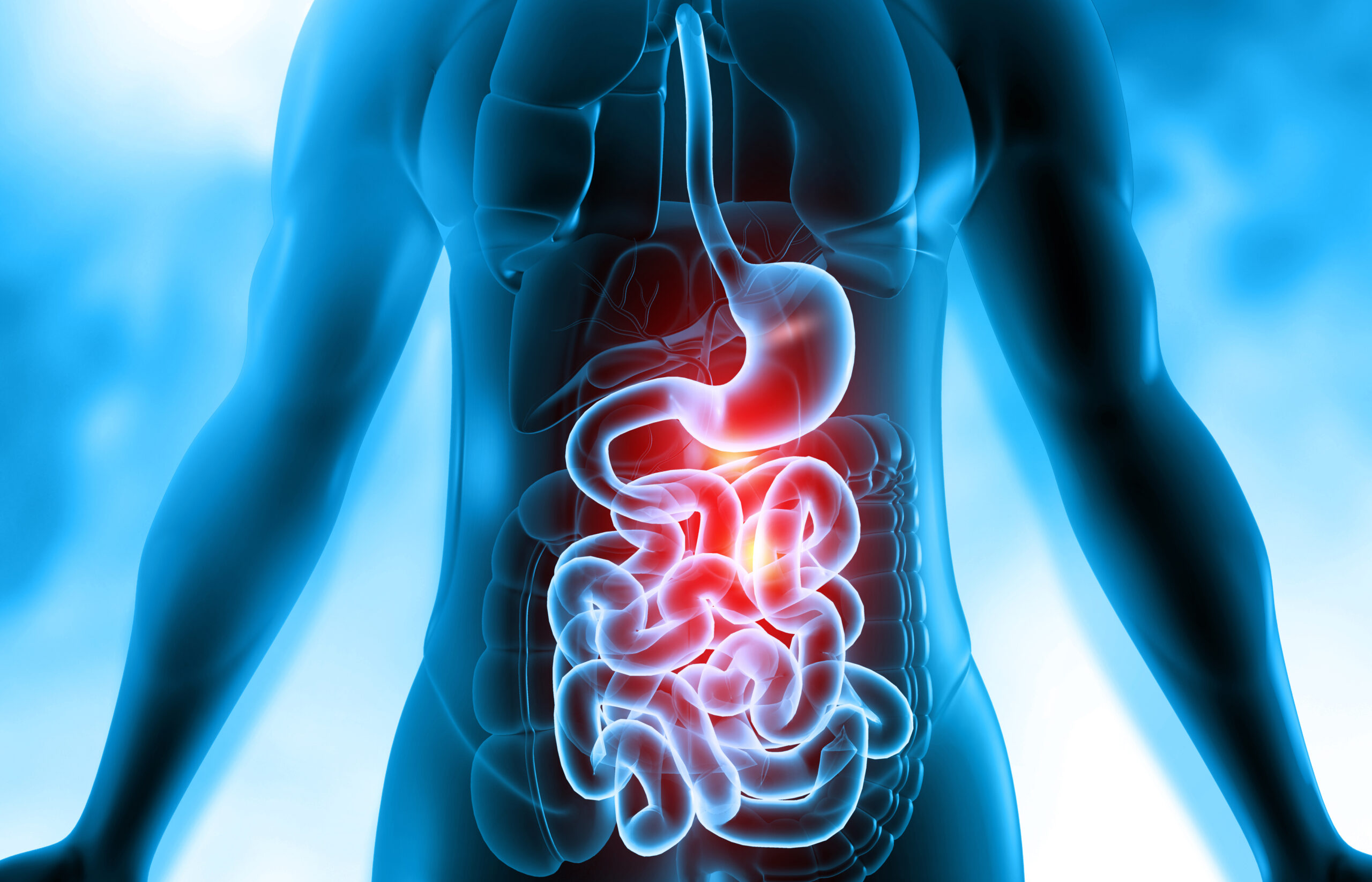Longevity - Gut Health

Longevity - Gut Health Blood Test
Gut health refers to the balance and function of the many complex systems within the gastrointestinal tract. This includes digestion, absorption of nutrients, and the balance of the microbiota—the community of trillions of bacteria and other microorganisms living in the digestive tract. Maintaining gut health is crucial for overall well-being and can significantly impact various aspects of health, including digestion, immune function, mental health, and more.
Monitoring the levels of calprotectin and zonulin offers valuable insights into gut health, particularly in diagnosing and managing gastrointestinal disorders. Calprotectin, a protein released by white blood cells during inflammation, serves as a biomarker to detect inflammation in the GI tract, helping to differentiate between conditions like inflammatory bowel disease (IBD) and irritable bowel syndrome (IBS). It also aids in tracking disease activity, predicting relapses, and monitoring response to treatment. On the other hand, zonulin regulates the permeability of the intestinal lining’s tight junctions, controlling what passes into the bloodstream from the gut. Elevated zonulin levels can indicate increased intestinal permeability, often referred to as “leaky gut,” which is linked to conditions suchas celiac disease, type 1 diabetes, and various autoimmune diseases. By assessing both calprotectin and zonulin levels, healthcare providers can gain a comprehensive understanding of a patient’s gut health, addressing both inflammation and gut barrier function.
2 Analytes Tested: Calprotectin and Zonulin
Price: $199.00
Price includes convenient home collection kit for sample collection from the comfort of your home
Understanding Gut Health
Gut health refers to the balance and function of the many complex systems within the gastrointestinal tract. This includes digestion, absorption of nutrients, and the balance of the microbiota—the community of trillions of bacteria and other microorganisms living in the digestive tract. Maintaining gut health is crucial for overall well-being and can significantly impact various aspects of health, including digestion, immune function, mental health, and more.
Key Components of Gut Health
- Gut Microbiota: The gut is home to a diverse community of microorganisms that play a vital role in digestion, nutrient absorption, and immune function. A healthy microbiota is balanced and diverse, helping to keep harmful bacteria in check and supporting overall health.
- Gut Barrier: The lining of the gut acts as a barrier, controlling what passes into the bloodstream from the digestive tract. A healthy gut barrier prevents harmful substances from leaking into the body and causing inflammation or infection.
- Digestive Enzymes and Acids: These substances are essential for breaking down food into nutrients that can be absorbed by the body. Proper levels of digestive enzymes and stomach acid are crucial for efficient digestion and nutrient absorption.
Signs of a Healthy Gut
- Regular Bowel Movements: Consistent and easy-to-pass stools are a sign of good digestive health.
- No Chronic Digestive Discomfort: Absence of chronic bloating, gas, diarrhea, or constipation.
- Balanced Energy Levels: Proper nutrient absorption supports steady energy throughout the day.
- Healthy Skin: The gut-skin connection means that a healthy gut often reflects in clear, healthy skin.
- Mental Clarity and Good Mood: The gut-brain axis influences mood and cognitive function, so a healthy gut can contribute to better mental health.
Factors Affecting Gut Health
- Diet: High-fiber foods, fermented foods, and a variety of fruits and vegetables support a healthy microbiome. Processed foods, high sugar intake, and excessive alcohol can negatively impact gut health.
- Antibiotics and Medications: While sometimes necessary, antibiotics can disrupt the balance of gut bacteria. Other medications can also affect gut health.
- Stress: Chronic stress can impact the gut by altering its environment and affecting its function.
- Sleep: Poor sleep can disrupt the gut microbiome and its function.
- Exercise: Regular physical activity supports a healthy digestive system and microbiome.
Improving Gut Health
- Balanced Diet:
- Fiber: Include plenty of fiber-rich foods such as fruits, vegetables, legumes, and whole grains.
- Fermented Foods: Incorporate foods like yogurt, kefir, sauerkraut, kimchi, and kombucha, which contain beneficial probiotics.
- Prebiotics: Foods like garlic, onions, leeks, asparagus, and bananas feed beneficial gut bacteria.
- Probiotics: Consider taking a probiotic supplement to help maintain a healthy balance of gut bacteria, especially after taking antibiotics.
- Hydration: Drink plenty of water to support digestion and nutrient absorption.
- Manage Stress: Practice stress-reducing activities such as meditation, yoga, deep breathing exercises, or spending time in nature.
- Adequate Sleep: Aim for 7-9 hours of quality sleep each night to support overall health, including the gut.
- Regular Exercise: Engage in regular physical activity to promote healthy digestion and gut function.
- Avoid Overuse of Antibiotics: Use antibiotics only when prescribed and necessary, and follow the prescribed course exactly.
Understanding Leaky Gut
Leaky gut, or increased intestinal permeability, is a condition where the lining of the small intestine becomes damaged, causing undigested food particles, toxins, and bacteria to “leak” through the intestines and flood the bloodstream. This can trigger widespread inflammation and initiate a cascade of immune responses, potentially leading to various health issues.
Key Components of Leaky Gut
- Intestinal Lining: The intestinal lining consists of tight junctions that control what passes from the gut into the bloodstream. When these tight junctions become loose or damaged, they allow harmful substances to pass through.
- Zonulin: Zonulin is a protein that regulates the tight junctions in the gut. Elevated levels of zonulin can cause these junctions to open more than they should, leading to increased permeability.
Causes of Leaky Gut
- Diet: A diet high in processed foods, sugar, alcohol, and certain food additives can damage the gut lining.
- Chronic Stress: Prolonged stress can weaken the immune system and affect the gut barrier.
- Infections: Bacterial, viral, or fungal infections can damage the gut lining.
- Medications: Long-term use of nonsteroidal anti-inflammatory drugs (NSAIDs) and antibiotics can contribute to leaky gut.
- Imbalance in Gut Microbiota: Dysbiosis, or an imbalance in the gut microbiome, can disrupt the gut barrier.
Symptoms of Leaky Gut
- Digestive Issues: Bloating, gas, diarrhea, or constipation.
- Food Sensitivities: Increased sensitivity to certain foods.
- Inflammation: Chronic inflammation can manifest in various ways, including joint pain and skin conditions like eczema.
- Immune System Issues: Increased susceptibility to infections and autoimmune diseases.
- Mental Health: Mood swings, anxiety, and depression can be linked to leaky gut due to the gut-brain connection.
Diagnosing Leaky Gut
- Zonulin Levels: Elevated zonulin levels in blood or stool tests can indicate increased intestinal permeability.
Improving Leaky Gut
- Dietary Changes:
- Eliminate Trigger Foods: Remove processed foods, sugars, alcohol, and gluten.
- Increase Fiber Intake: Consume high-fiber foods like fruits, vegetables, legumes, and whole grains.
- Fermented Foods: Include yogurt, kefir, sauerkraut, and kimchi to promote a healthy microbiome.
- Anti-Inflammatory Foods: Eat foods rich in omega-3 fatty acids, such as fatty fish, flaxseeds, and walnuts.
Probiotics and Prebiotics:
- Probiotics: Supplementing with beneficial bacteria can help restore gut balance.
- Prebiotics: Foods like garlic, onions, leeks, asparagus, and bananas feed beneficial gut bacteria.
Lifestyle Changes:
- Stress Management: Practice stress-reducing techniques like meditation, yoga, and deep breathing exercises.
- Regular Exercise: Physical activity supports healthy digestion and gut function.
- Adequate Sleep: Aim for 7-9 hours of quality sleep per night to support overall health.
The Gut-Brain Axis
The gut-brain axis is a complex and bidirectional communication system between the gastrointestinal tract and the central nervous system, which plays a crucial role in maintaining both gut health and overall well-being. This axis involves multiple pathways, including the nervous system, endocrine system, and immune system, facilitating constant communication between the gut and the brain.
Key Components of the Gut-Brain Axis
- Vagus Nerve: This major nerve connects the gut to the brain and is a primary communication pathway. It transmits signals from the gut to the brain and vice versa, influencing gut motility, secretion, and inflammation.
- Gut Microbiota: The trillions of microbes living in the gut have a significant impact on the gut-brain axis. They produce neurotransmitters (such as serotonin and dopamine), short-chain fatty acids, and other metabolites that can affect brain function and mood.
- Neurotransmitters: The gut produces several neurotransmitters that play roles in mood and cognition. For instance, about 90% of the body’s serotonin, often called the “happy hormone,” is produced in the gut.
- Immune System: The gut-associated lymphoid tissue (GALT) contains immune cells that interact with gut microbes, influencing systemic inflammation and brain health.
- Endocrine System: Gut hormones, such as ghrelin and leptin, affect hunger and satiety, which can also influence brain function and behavior.
Impacts on Health
- Mental Health: There is growing evidence that the gut-brain axis plays a role in mental health conditions such as depression, anxiety, and stress. Dysbiosis (an imbalance in gut microbiota) has been linked to these conditions, suggesting that a healthy gut can contribute to better mental health.
- Digestive Health: Proper communication along the gut-brain axis is essential for maintaining healthy digestive function. Issues like irritable bowel syndrome (IBS) are often associated with disruptions in this communication.
- Immune Function: Since a large part of the immune system resides in the gut, the gut-brain axis influences immune responses. A healthy gut can help regulate inflammation and protect against autoimmune conditions.
- Cognitive Function: Emerging research suggests that gut health may influence cognitive functions such as memory and learning. Gut dysbiosis has been implicated in neurodegenerative diseases like Alzheimer’s.
Supporting the Gut-Brain Axis
- Diet: Consuming a balanced diet rich in fiber, fermented foods, and prebiotics can support a healthy gut microbiome, which in turn supports the gut-brain axis.
- Probiotics and Prebiotics: Supplements containing beneficial bacteria (probiotics) and the foods that feed them (prebiotics) can promote a healthy microbiome.
- Stress Management: Chronic stress can negatively impact the gut-brain axis. Techniques like meditation, deep breathing, and yoga can help manage stress levels.
- Sleep: Adequate and quality sleep is essential for maintaining a healthy gut-brain axis.
- Regular Exercise: Physical activity promotes healthy digestion and has been shown to positively affect the gut microbiome.
Understanding and supporting the gut-brain axis is crucial for maintaining overall health and well-being. By focusing on a holistic approach that includes diet, lifestyle, and stress management, we can promote a healthy gut-brain connection.
Test Details
Monitoring the levels of calprotectin and zonulin offers valuable insights into gut health, particularly in diagnosing and managing gastrointestinal disorders. Calprotectin, a protein released by white blood cells during inflammation, serves as a biomarker to detect inflammation in the GI tract, helping to differentiate between conditions like inflammatory bowel disease (IBD) and irritable bowel syndrome (IBS). It also aids in tracking disease activity, predicting relapses, and monitoring response to treatment. On the other hand, zonulin regulates the permeability of the intestinal lining’s tight junctions, controlling what passes into the bloodstream from the gut. Elevated zonulin levels can indicate increased intestinal permeability, often referred to as “leaky gut,” which is linked to conditions such as celiac disease, type 1 diabetes, and various autoimmune diseases. By assessing both calprotectin and zonulin levels, healthcare providers can gain a comprehensive understanding of a patient’s gut health, addressing both inflammation and gut barrier function.
To improve gut health, incorporating dietary changes is essential. Consuming fiber-rich and fermented foods supports a balanced gut microbiome, while prebiotics and probiotics can help maintain this balance. An anti-inflammatory diet, which includes fatty fish, leafy greens, and nuts, can reduce inflammation. It’s also crucial to avoid processed foods, sugars, and other inflammation triggers. Supporting gut barrier function can be achieved by following a gluten-free diet for those with celiac disease or gluten sensitivity and ensuring adequate intake of nutrients like zinc and L-glutamine.
Additionally, lifestyle factors play a significant role in gut health. Managing chronic stress through meditation, exercise, and sufficient sleep can positively impact both inflammation and gut permeability. Staying adequately hydrated is vital for digestion and maintaining a healthy gut lining. By understanding and addressing these markers, individuals can take proactive steps to enhance their overall gut health, leading to better overall well-being.
2 Analytes Tested
- Calprotectin
- Zonulin
Calprotectin is a protein found in white blood cells and is a marker of inflammation in the gastrointestinal (GI) tract. It is commonly measured through a stool or serum test to help diagnose and monitor inflammatory bowel diseases (IBD), such as Crohn’s disease and ulcerative colitis. Elevated levels of calprotectin indicate inflammation in the intestines.
Role in the Body:
- Calprotectin is released by neutrophils, a type of white blood cell, during inflammation.
- It binds to calcium and zinc, hence the name “calprotectin,” and has antimicrobial properties.
Clinical Use of Calprotectin
- Helps differentiate between IBD and non-inflammatory conditions like IBS.
- Reduces the need for invasive diagnostic procedures in initial assessments.
- Monitoring and Management: Regular calprotectin testing can help track the progress of IBD and assess the effectiveness of treatment.
- Helps in making informed decisions regarding medication adjustments or the need for further investigation.
- Predicting Relapse: Elevated calprotectin levels can indicate a potential relapse in patients with IBD, allowing for preemptive adjustments in treatment.
Factors Affecting Calprotectin Levels
- Diet and Medication: Certain foods and medications can impact calprotectin levels, so it is important to follow any pre-test instructions provided by healthcare providers.
- Age: Calprotectin levels can vary with age, and normal ranges may differ between children, adults, and the elderly.
- Recent Infections: Gastrointestinal infections can temporarily raise calprotectin levels.
Conclusion
Calprotectin is a valuable biomarker for detecting and monitoring inflammation in the GI tract. It provides a non-invasive method to assist in the diagnosis and management of inflammatory bowel diseases and helps differentiate between inflammatory and non-inflammatory gastrointestinal conditions. Regular monitoring of calprotectin levels can help guide treatment decisions and improve patient outcomes in managing chronic inflammatory conditions.
Zonulin is a protein that plays a critical role in regulating the permeability of the tight junctions between the cells of the intestinal lining. Its function is crucial for maintaining the barrier that controls what passes from the intestines into the bloodstream. Understanding zonulin’s role and its impact on gut health can provide valuable insights into various gastrointestinal and systemic health issues.
Role of Zonulin in Gut Health
- Regulation of Tight Junctions:
- Function: Zonulin modulates the opening and closing of tight junctions in the intestinal lining. These junctions control the passage of substances from the gut into the bloodstream.
- Permeability: When zonulin levels increase, tight junctions can become looser, leading to increased intestinal permeability, commonly known as “leaky gut.”
Triggering Factors:
- Gluten: In genetically predisposed individuals, components of gluten can trigger the release of zonulin.
- Infections: Certain bacterial infections can also stimulate zonulin release, affecting gut permeability.
Impact of Elevated Zonulin Levels
- Increased Intestinal Permeability (Leaky Gut):
- Mechanism: Higher zonulin levels lead to looser tight junctions, allowing larger molecules, toxins, and pathogens to pass through the gut barrier and enter the bloodstream.
- Consequences: This can trigger systemic inflammation and immune responses, contributing to various health issues.
Associated Health Conditions:
- Celiac Disease: Elevated zonulin levels are commonly observed in individuals with celiac disease, where gluten triggers an immune response that damages the intestinal lining.
- Type 1 Diabetes: Increased zonulin levels have been linked to type 1 diabetes, suggesting a role in autoimmune disease development.
- Autoimmune Diseases: Elevated zonulin levels may contribute to the development of other autoimmune conditions by promoting systemic inflammation.
- Irritable Bowel Syndrome (IBS): Some studies suggest a potential link between zonulin levels and IBS, though this is still being researched.
Strategies to Support Healthy Zonulin Levels and Gut Integrity
- Dietary Changes:
- Gluten-Free Diet: For those with celiac disease or gluten sensitivity, avoiding gluten can help reduce zonulin levels.
- Anti-Inflammatory Diet: Incorporate foods that reduce inflammation, such as omega-3 rich fish, nuts, seeds, and leafy greens.
- Fiber-Rich Foods: Consume a diet high in fiber from fruits, vegetables, legumes, and whole grains to support a healthy gut microbiome.
- Probiotics and Prebiotics:
- Probiotics: Introduce beneficial bacteria through fermented foods or supplements to maintain gut health.
- Prebiotics: Foods that feed beneficial bacteria, like garlic, onions, leeks, and asparagus, can support a healthy microbiome.
- Lifestyle Modifications:
- Stress Management: Chronic stress can impact gut permeability. Practices such as meditation, yoga, and regular physical activity can help manage stress levels.
- Adequate Sleep: Ensure consistent, quality sleep to support overall health, including gut function.
- Supplements:
- L-Glutamine: An amino acid that supports the repair and maintenance of the intestinal lining.
- Zinc: An essential mineral for maintaining gut barrier integrity.
Conclusion
Zonulin is a key regulator of gut permeability, and its levels can significantly impact gut health. Elevated zonulin levels can lead to increased intestinal permeability, contributing to various health issues, including autoimmune diseases and chronic inflammation. By adopting dietary and lifestyle strategies to support healthy zonulin levels and gut barrier function, individuals can improve their gut health and overall well-being. Understanding the role of zonulin and taking proactive steps to manage its levels is essential for maintaining a healthy gut.
- SST tube of blood
7-14 days
Price: $199.00


